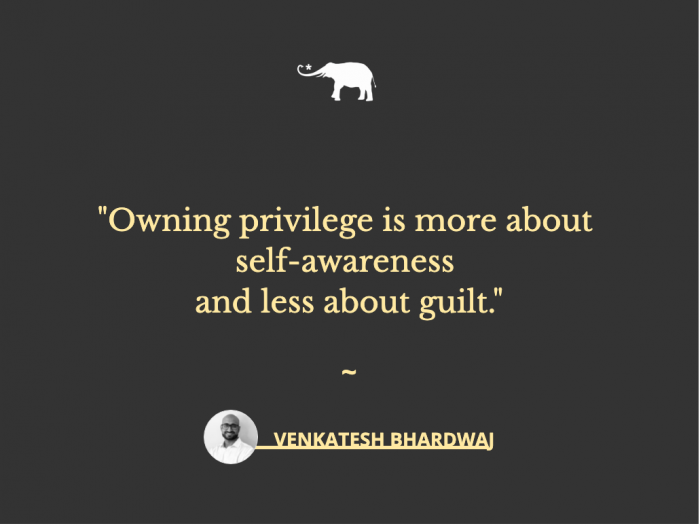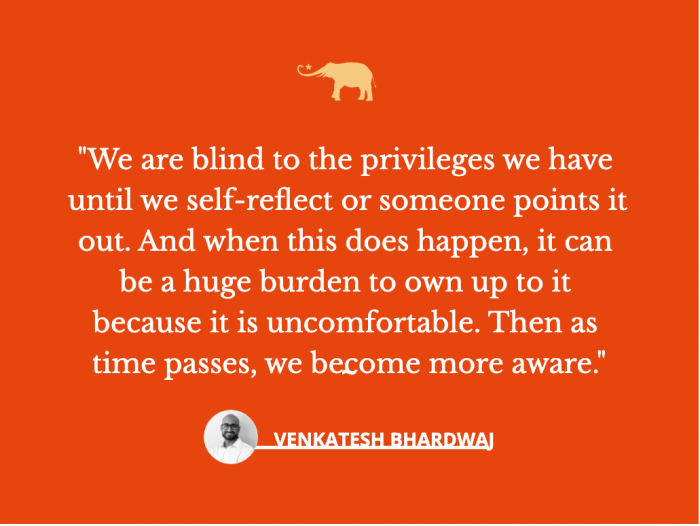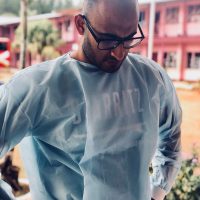I grew up in a middle-class home in the Middle East.
The giant malls of Dubai, with their dancing fountains, skiing, and surfing, were all within a four-hour drive. In those days, it was just dust and heat when we looked out the car window, endless mounds of sand, and each grain of sand shimmering in the 50-degree heat from the sun.
We made the trip to Dubai almost yearly. It was our mini vacation. Our big summer holidays consisted of a two-hour plane ride to India to spend time with our grandparents—and provide our parents with a respite for a couple of months.
My childhood didn’t suck.
We lived in apartments that almost always boasted a spare bedroom for a guest. Usually, my uncle used the extra room given he stayed with us for a large part of our lives. My hours after school consisted of math tutoring and a healthy dose of televised sport and MTV. MTV had made its way into our houses via cable television. Duran Duran, Michael Jackson, and the Pet Shop Boys were often the most heard sounds in my house.
I remember owning a computer and at least two gaming consoles. I remember getting the internet for the first time and how slow it was.
I cannot remember my brother and me ever going to sleep hungry. I don’t remember my parents being concerned about affording rent or eviction from our home—or at least, my brother and I were never aware of such adversities. There were always birthday presents, parties, and filled Christmas stockings. It really was an idyllic childhood.
As was the case with many South Asian households, my grandparents in India also apportioned a share of my parents’ wages. My parents were good people.
The only times I ever felt their wrath was when I failed math tests, which in my case was too often—or when I got into fights with street kids. Their stern yet loving approach instilled in us values that many parents pass on to their children. We absorbed ideals of love, kindness, and honesty.
I hated school. My parents were typical of all South Asian heritage parents. They drummed academic rigour into me, being completely unaware of how much I hated school. I always managed to scrape the necessary marks to get past each year. My final year 12 mark was 56 percent as a raw percentage, not enough to let me into any tertiary education.
As it turned out, my parents forethought this. They poured all their life savings to migrate to Australia in the quest for a new beginning and better opportunities for their children.
I found my way back into a university backed by government loans that immigrants could access. “Learn now and pay later,” it promised. No parents’ life savings required—the ducks lined up!
But here is a question I always reflect on: had I not grown up in this sort of life, how would things have turned out?
A life where we feared where our next loaf of bread would come from. One with no fountains and ski fields, hardly sheltered from the arid 50-degree heat. Raised by parents with substance abuse who couldn’t look after themselves. One where I was absent from school more often than present. Unfilled Christmas stockings, foster homes, no birthday presents. Where my parents did not seek opportunities for their kids in faraway lands that promised a new life. No second chance to choose an education.
I never thought about it then, but my life was, in fact, scattered with privilege. There you go—I said it!
We get told that admitting privilege equates to being bad and is likely to lead to a fear of loss of self and wealth.
But the truth is far from that. Owning it is uncomfortable—but it allows one to utilise privileges in a manner to help create more equity in society.
In my own case, my background and my role as a healthcare professional enable me to reflect on privilege—both in the workplace and as a human being. The process of accepting my own privilege has not been an easy one. Acknowledging and critiquing it is something that I still struggle with. The benefits afforded to me and to my children are something I gawk at. But this is also a learning process.
One day, I will be comfortable with the advantages I have—and find a way to pay it forward with grace.
Reflecting on privilege is a challenge, a constant mental exercise. These days it has become part of my own daily consciousness. Yet, it remains a challenging concept to deal with. I question my own position in society and the world at large as an attempt to make sense of the imbalances I am a part of.
There are inherent advantages due to my professional role in society. A silent immunity due to my identity. I know it.
But this also allows me an opportunity to provide access to opportunities to those that don’t. For me, harbouring this immunity for individual pursuit alone does not make any sense. Even attempting to figure out what use it can serve, a more worthwhile exercise.
Failing to acknowledge the power these privileges award erodes the possibilities of ability. It allows opportunities to take a stance. With thought, word, and action, we shoulder the responsibility for each other’s experiences.
I want to tell myself that I grew up disadvantaged so that I can relate to society as a whole—but that would be a lie.
My parents put me on my first plane when I was four years old. I could choose what career I wanted to pursue and change my path if I wanted. We were never hungry, had a roof to live under, and were always cared for by my immediate and extended family.
My grandparents and parents worked hard and did not have inexhaustible wealth, but my brother and I had the privilege of a stable household. My parents could have chosen to put their life savings into moving countries. Many people don’t get this choice.
For a long time, I didn’t realise these privileges that I continue to draw upon. But if I didn’t have them, I would have—and therein lies the nature of privilege.
We are blind to the privileges we have until we self-reflect or someone points it out. And when this does happen, it can be a huge burden to own up to it because it is uncomfortable. Then as time passes, we become more aware.
A realisation begins to dawn that there is no competition or title. No race for the next slumdog millionaire—or any such compelling metaphor to express deprivation. But even if there were, we would want no part in it.
Acknowledging privilege can help create room. Space for those without the same privileges to express themselves—and in doing so, free them of these burdens somewhat.
In my own case, thinking about my own privilege may allow me to use it to enact social change. Learning to name and own my privilege is an aid to creating cultures of freedom and growth within and outside.
Often, I am ashamed of my own privileges and feel a sense of wanting to apologise for them. I have to remind myself that owning my privilege does not discount my own experiences.
Many of us, me included, have titles that allow us opportunities as leaders—be it in our workplaces or as parents and educators.
We all understand the work it has taken us or those before us to get there (thoughts on success, meritocracy, and luck is another topic close to my heart, but that is for another day!).
It is about acknowledging others’ struggles and challenges with empathy.
Owning privilege is more about self-awareness and less about guilt.
By asking myself and my close friends to question the power we hold, we start to dig deep. We have real conversations with each other—in personal and professional spheres. We begin to use our roles for the world at large and embrace change for the better. And these actions and thoughts are not inconsequential, by the way.
Our actions create a significant impact on others that look up to us. In doing so, we start learning from each other.
Maya Angelou once said: “when you know better, you do better.”
Having privilege is not wrong. But not acknowledging it is damaging—because owning our privilege sets others free and allows them room on the same boat and helps to create inclusive communities that allow more parity than not.
~
~










Read 0 comments and reply